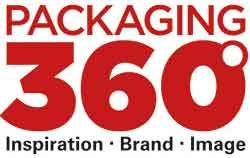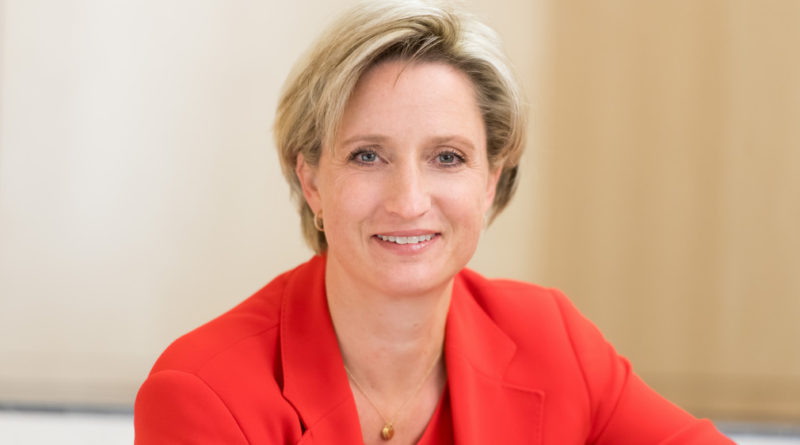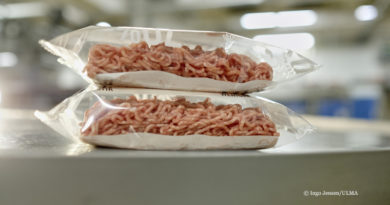The Silicon Valleys of the Packaging Industry
Large clusters of the packaging machinery industry have emerged in several regions of Germany. Mechanical engineering companiers, even those who compete with each other, build networks. In the south, two clusters want to merge. In the following, we explain the objectives of the clusters and the advantages and disadvantages for the industry.
The Württemberg regions of Heilbronn-Franken, Stuttgart, Rems-Murr-Kreis and Waiblingen are a tiny dot on a map of the world. But this dot is “Germany’s packaging locomotive”, say entrepreneurs from Baden-Württemberg. This German state is rich in inventors, and is the cradle of German packaging machine production: in 1861 master model maker Friedrich Hesser and engineer Karl Geiger built Germany’s first envelope inserting machine in Canstatt. Many of today’s companies have a common family tree, which can be traced back to companies such as the pioneers Hesser, Otto Höfliger or Rudolf Karg. Thoroughness, precision, self-reliance are all virtues which have significantly favoured the development of packaging machine construction in the southwest, with its Pietistic tradition. Over the years, more and more successful machine builders have settled in the area around the Kocher, Jagst, Rems and Murr rivers, producing mainly for the pharmaceutical, cosmetics and food industries.
Faced by growing challenges in the globalised world, they are working on tackling these faster and better through concerted action and pooling experience, even though the companies are occasionally in competition. This is why a large number of companies in the packaging machinery industry joined forces in 2007 to form networks.
 "The high density of companies leads to a concentration of skilled workers and great innovative strength in the industry".
Markus Höfliger, CEO of PEC and Chairman of the Supervisory Board of Harro Höfliger Verpackungsmaschinen GmbH.
"The high density of companies leads to a concentration of skilled workers and great innovative strength in the industry".
Markus Höfliger, CEO of PEC and Chairman of the Supervisory Board of Harro Höfliger Verpackungsmaschinen GmbH.
The two clusters Packaging Valley Germany e. V. with a focus on packaging machine construction and suppliers, as well as Packaging Excellence Center e. V., are the two largest and most important German clusters. (PEC) as a competence center for packaging and automation technology are among the largest networks in the packaging industry in Germany. What has a name and position in the packaging industry is a member of the PEC with its headquarters in Waiblingen or the Packaging Valley with its headquarters in Schwäbisch Hall. Both networks have been highly recognized worldwide for years. They are based on the principle “by companies for companies” in the market. In dialogue with the scientific community, they want to achieve needs-based development in the industry and create synergies. “The high density of companies leads to a concentration of skilled workers and a high innovative strength in the industry. This would not be possible to such an extent if the companies were not so close together. The best example here is Silicon Valley,” says Markus Höfliger, CEO of the PEC and Chairman of the Supervisory Board of Harro Höfliger Verpackungsmaschinen GmbH.
Although according to the VDMA the packaging machinery industry with more than 300 companies is small compared to other mechanical engineering sectors, the two clusters Packaging Valley and PEC are a flagship for the state of Baden-Württemberg, as Minister of Economic Affairs, Labour and Housing Dr Nicole Hoffmeister-Kraut confirms. “The significance of the two cluster initiatives is unmistakable, including outside Baden-Württemberg. The nearly 100 companies in the cluster initiatives represent 25 per cent of all packaging machine manufacturers in Germany. Some of them have become world market leaders in their respective niches, others are on their way there”.
Speaking with one voice
“The Packaging Valley cluster and the Packaging Excellence Centre are particularly notable for the prominence of small and medium sized companies in their membership. Another characteristic is the extensive coverage of the value chain – from suppliers through the mechanical engineering companies to specialised engineering service providers and scientific centres. The companies in the clusters are highly innovative and have continually adapted over the decades to new challenges and customer requirements. Issues such as avoiding packaging waste and replacing plastics are topical questions that affect the industry and the cluster initiatives,” the Minister concludes.
Formally speaking, the two clusters are two independent associations which decided at their recent general meetings in July 2019 to prepare for a merger, which will bring in a new era after twelve years. The merger is scheduled for next year. In the coming months, the negotiators – the two full-time directors and the honorary chairs – will develop a comprehensive strategy paper for the merger, which will be submitted to the members of the two clusters for final approval. Among other things, it involves amending the two statutes, resiting the headquarters to Waiblingen and using the joint name Packaging Valley Germany e. V.”. The existing offices in Schwäbisch Hall and Waiblingen will be retained.
The state of Baden-Württemberg has long favoured a merger. “The two cluster initiatives have already been cooperating for some time. For me, the merger is now a logical and consistent development. The companies have to prepare themselves for increasing competition, as signs of a weakening economy are also apparent in mechanical engineering. That is why it makes sense to bundle forces and use resources effectively. In this way, companies can profit even better from each other and the services of cluster management can be used even more effectively,” says Hoffmeister-Kraut. The merger will result in a powerful cluster initiative with almost 100 members.
 "We want to tell the world that the best packaging machine manufacturers can be found here in the south of Germany".
Kurt Engel, Managing Director Packaging Valley Germany
"We want to tell the world that the best packaging machine manufacturers can be found here in the south of Germany".
Kurt Engel, Managing Director Packaging Valley Germany“It will be crucial that the respective regional commitment of actors such as business development institutions or municipalities continues after the merger,” she adds. “We want to tell the world that the best packaging machine manufacturers can be found here in southern Germany. This is one of the goals of Packaging Valley Germany,” says Kurt Engel, Managing Director of the association. “The medium-sized and smaller companies increase their level of awareness through membership in Packaging Valley, the large companies already have strong marketing. We are not so conceited: We know that they are not dependent on the association. But if you look at it from above, the big companies will also benefit from the cluster”. The aim is to speak with one voice.
Marketing competence meets content
Since the association was founded, Packaging Valley’s focus has increasingly developed into marketing. The “Packaging Valley Germany” brand has become even better known throughout Germany and the world, and with it the members of the association. In the event of a merger, Packaging Valley could contribute its marketing expertise, and PEC would enrich the large association with content topics. Within the Packaging Valley network, the member companies cooperate, among other things, in recruiting junior staff and specialists. “We are trying to attract students to the region throughout Germany and are present at university days and other exhibitions as Packaging Valley,” explains Engel. If one were to search only within southern Germany, one would get too far into the competitive situation of the companies. After all, no one wants one of the neighbours to poach the employees. “We can tell the young people that family businesses guarantee good working structures. Because even if the companies have up to 2,000 employees, it is owner-managed companies that offer security. And the region offers opportunities for advancement for junior staff. The landscape is beautiful anyway. That’s what we advertise with”. Of course, there have also been sceptical voices from the very beginning. What use is a cluster? is one of the questions. “I see that sales managers from mechanical engineering companies tell me that customers around the world have become aware of the respective companies through Packaging Valley. For me, this is proof that it is worthwhile to cooperate in a network”. Engel makes it clear, however, that each company handles the projects on its own. “Machines and concrete projects are not discussed. No one wants to pass on secret knowledge and lose customers as a result”. However, there is an exchange on fundamental topics: How can logistics be improved, which experts can be invited together? Members of Packaging Valley pay between 800 and 8,000 euros a year in contributions, depending on turnover. This is how the association, which has managed without public funds in recent years, finances itself. The intended merger will make it easier in future to receive subsidies from the federal or state governments for specific projects. “But we don’t need any outside money for our ongoing operations. For example, joint exhibition stands, such as at FachPack, are used for day-to-day operations.
The structure of the future fusion partner PEC, but not the objective, differs slightly from that of the association Packaging Valley. The PEC includes not only packaging machine manufacturers from Waiblingen, but also local authorities and service providers. The PEC also receives public funding. In recent years, this has been at least 300,000 euros. A large part of this was used for trade fair appearances, network meetings and classic advertising measures. Depending on the number of employees – here not on turnover – the member companies pay 1,000 to 7,000 euros a year in membership fees to the PEC, explains Managing Director Dr. Marc Funk, who is also Managing Director of Wirtschaft, Tourismus und Marketing GmbH, the business development agency of the city of Waiblingen. The packaging networks are also involved in one of the 13 competence centres of the Stuttgart Region Economic Development Corporation. In this sense, the PEC represents an interface between members from business, science and politics. Therefore, it is logical that not only mechanical engineering manufacturers are members.
 "Now we have the chance to bring in or bring back one or two sheep or two".
Dr. Marc Funk, Managing Director Packaging Ecxcellence Center.
"Now we have the chance to bring in or bring back one or two sheep or two".
Dr. Marc Funk, Managing Director Packaging Ecxcellence Center.“The tasks of the PEC include identifying potential applications in new technologies, initiatives in the field of education and training, and facilitating access to national and European funding. The network initiates joint projects, also in cooperation with other competence centres. Leading companies with world-famous products are making Waiblingen famous,” as Funk says. Nevertheless, the number of companies that can belong to the network is limited. “This is why it makes sense to bundle the companies in one network.”
Membership structure is the crux of the merger negotiations
One of the “big” members of the PEC is Bosch Packaging Technology GmbH with 6,100 employees, who would like to be regarded as one of many members within the association. “Whether it’s opening up the labor market, helping to shape industry standards, or developing sustainable packaging concepts – no one can solve it alone. This is why Bosch Packaging Technology has been a member of the Packaging Excellence Region Stuttgart e. V. for many years. “We expressly welcome the planned merger with Packaging Valley Germany e. V., because it will create an even stronger initiative that will ensure greater competitiveness for all those involved,” says Dr. Johannes Rauschnabel, Head of Advanced Development and Innovation at Bosch Packaging Technology GmbH and member of the Packaging Excellence Center Executive Board.
Despite all the positive comments on the planned merger, there are also controversial points that could lead to a tug-of-war in the coming months – for example, which players will be involved?
After a merger, what role do municipalities play in whether they can be active members? The commitment of the municipalities demanded by the Minister of Economic Affairs is also associated with a question mark. The revision of the two statutes into a single statute is therefore likely to be the most difficult task for negotiators. In addition to Höfliger, Funk and Engel, this is Bernd Hansen, Chairman of Packaging Valley and Managing Partner of the Rommelag Group. He actually wanted to hand over the chairmanship of Packaging Valley to younger hands at the end of the year, when he would be 65 years old. “But now the planned merger is coming in my way. I was happy to agree to continue until the merger of Packaging Valley and Packaging Excellence Center”. After all, he was an advocate of a merger right from the start. “We don’t want to grow at any price. If the association brings added value, then more companies will join it”, says Hansen.
"We have to grow together like in a marriage. That takes time". Bernd Hansen, Chairman of Packaging Valley and Managing Partner of the Rommelag Group
Hansen has a clear position on the structure of the packaging cluster. “At Packaging Valley, we only accept entrepreneurs as members, and in the past few years we have been without public funding. We are basically of the opinion that we can do the networking ourselves.” The fact that local authorities or service providers are also members of PEC is one of the issues that will be raised in the merger negotiations. It would be possible that in future active members – the companies – and passive members – for example municipalities or banks – would belong to it. “The categorization of members is a tough nut to crack. He personally thinks that municipalities have a different approach to entrepreneurs and is therefore sceptical about membership in a packaging cluster.
“I’m an entrepreneur, I want issues to be discussed and a decision to be made”. Even if the merger is completed next year as planned, the new larger network will still need time to evolve. “We must grow together like in a marriage. It takes time”, says Hansen.
Vision: clusters work on interdisciplinary exchanges
Claus Paal has accompanied the growth of a packaging cluster for several years. He is one of the founders of the PEC. Initially, the idea of founding a network was born in 2007, he reports. “Because you wouldn’t believe how isolated entrepreneurs sometimes work,” says Paal. The CDU state parliament representative in Baden-Württemberg and IHK chairman for the Rems-Murr district is himself an entrepreneur and packaging machine engineer – and he is now in his third generation. After selling the Paal packaging machines he founded in Remshalden to Bosch Verpackungstechnik in 2010, he founded the management consultancy Claus Paal and later A+V Automation und Verpackungstechnik. The network became a cluster, organized as an association and supported by the Ministry of Economic Affairs in Stuttgart and the Stuttgart Region Economic Development Corporation. “No matter where we called, we reaped enthusiasm. The Rems-Murr district has many strong packaging machine manufacturers. The idea of them holding joint events and talking to each other to learn from their colleagues’ experiences was new at the time,” says Paal. In the course of the founding years, more and more component manufacturers joined as members. For small and medium-sized companies, the cluster is particularly helpful for making themselves visible at trade fairs. “Today’s world is so complex, the technology is so decisive. That’s why clusters are much more important today than they were in 2007,” the economic politician is convinced. In the meantime, Paal is no longer active in the PEC, but is happy to advise it again and again. “After the baby was born and was able to walk, I went into the second row”, he says.
Even though Paal is no longer actively involved in the packaging cluster, he still has a vision for the association: “When different clusters work together on an interdisciplinary basis, new thinking emerges. When, for example, a doctor and a mechanical engineer talk to each other, they come up with new approaches. The next step is therefore to network not only two packaging clusters, but also different clusters”. Artificial intelligence is an example of interdisciplinary knowledge. “In order to secure Germany as a business location, we must never rest, otherwise we will be overtaken. We are the driven ones. In global competition, we feel the breath of the other”, says Paal.
Customers benefit
How do customers benefit from packaging machine manufacturer networks? As a neutral partner, Packaging Valley brings together small and large companies so that they can understand and complement each other. For the companies’ customers, this means a competitive edge in the market and a wide range of packaging solutions. The Virtual Reality Centre is an example of a successful joint project. “The member companies use VR technology, among other things for plant planning and operator training,” explains Hans Bühler, managing partner of OPTIMA packaging group GmbH.
Hansen lists concrete customer benefits: “If we at Rommelag can’t technically fulfil customer wishes, then we tell them who makes a suitable machine in the Packaging Valley network. We can also serve as a reference customer for manufacturers from the cluster. In other words, if a packaging machine from the cluster is in use in our pharmaceutical production, we are happy to give a guided tour.” Conversely, they might demonstrate one of their machines at a company outside the Packaging Valley.
von Anna Ntemiris




